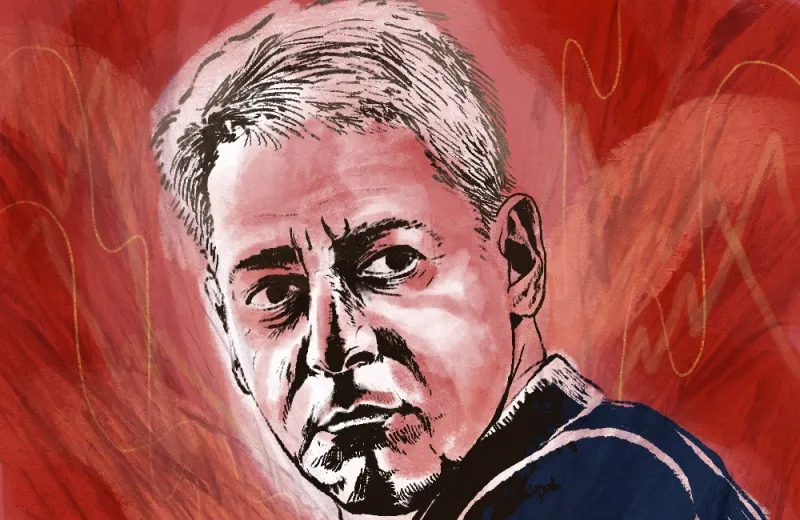Bill Ackman’s publicly traded hedge fund fell 4.4 percent in February, leaving Pershing Square Holdings up just 1.4 percent for the year.
That performance was worse than the broader market. The S&P 500’s total return was a negative 2.4 percent in February, giving the index a year-to-date gain of 3.7 percent.
But for Ackman — who owns close to 25 percent of the firm’s shares — there may be a greater cause of consternation: Pershing Square Holdings’ widening discount to its net-asset value. At the end of 2022, the company’s shares on the London Stock Exchange traded at a 33.2 percent discount to NAV, up from a 28.3 percent discount a year ago — an increase of nearly 5 percent.
Ackman has tried to close that gap through share buybacks and multiple stock exchange listings, but to no avail. He is now looking at how to move the London-traded fund to the New York Stock Exchange, where he believes the NYSE’s greater liquidity and access for U.S. investors could boost the share price.
The hedge fund manager first talked about this possibility last summer in his semi-annual report to investors, as Institutional Investor previously reported. More recently, he mentioned it to analysts in London earlier this year when Pershing Square held its annual meeting, according to a report by the Times of London.
But how could Ackman overcome U.S. regulations that forbid hedge funds from trading on a U.S. exchange?
Ackman declined to comment. But a recent change in Pershing Square’s portfolio may give some insight into his thinking.
Ackman takes a long-term view of markets and, despite incurring losses in 2022, he appears to have done little to shake up his portfolio. In fact, he made only one change during the fourth quarter that was reported to the Securities and Exchange Commission on the firm’s latest 13F filing. Pershing Square bought 2,274,971 more shares of Howard Hughes, the real estate development company that owns such properties as New York’s Seaport district, along with planned communities in Hawaii, Las Vegas, and Texas. It amounted to a 17 percent increase in his stake.
Pershing Square now owns almost 32 percent of Howard Hughes, which is currently worth $1.3 billion, and Ackman is the chairman of the board. Could it become part of the hedge fund manager’s plan to get a U.S. stock market listing for his hedge fund?
Howard Hughes has been a wild ride for Ackman, who spun assets off from mall REIT General Growth Properties to create the company in 2010. Ackman had bought 25 percent of General Growth in the depths of the real estate recession for pennies a share. Eventually Pershing Square made a 2,982.16 percent gain on the investment, according to 13D monitor, making it the most profitable activist trade ever.
Howard Hughes itself has been more of a struggle, and the stock is down sharply from its highs of $155 per share to its current price of around $80 per share. But in contrast to the rest of the market, it’s up 5.65 percent this year.
And it’s the only one of the stocks that Pershing Square owns in which Ackman has a controlling stake. That is critical to his hoped-for U.S. listing.
“One can envision a world in which over time PSH becomes a controlling owner of one or more businesses that comprise the substantial majority of our assets and income,” Ackman said in a letter to shareholders last August laying out the criteria for a U.S. listing.
“We expect to continually evaluate PSH and its operations, and consider whether in the future it may be able to operate not as an investment company in the U.S., but rather as an operating company that could be listed in the U.S.” In this scenario, Pershing Square would be like a smaller version of Warren Buffett’s Berkshire Hathaway.
Having a controlling stake in Howard Hughes alone would not fit that requirement. Its market cap is only $4.2 billion, compared to Pershing Square’s assets under management of about $14 billion.
Even after Ackman upped his stake in Howard Hughes in the fourth quarter of 2002, it comprised only 14 percent of Pershing Square’s publicly traded U.S. equities portfolio. And that doesn’t include Universal Music Group, whose shares aren’t registered in the U.S., so Pershing Square’s holdings are not reported to the SEC. At $1.3 billion, Howard Hughes comes to about 10 percent of the hedge fund’s assets, excluding its debt of $1.5 billion.







